Italy In A Glass: A Journey Through Italy’s Wine Regions
- Giada Jannotti
- Jul 3, 2025
- 8 min read
Updated: Jul 13, 2025

Searching for the best wine regions in Italy? This guide uncorks the essentials, breaking down Italy’s wine regions by geography and grape. Every region has its own signature wine, and this is what makes Italy so special - you can never go wrong! Whether you're dreaming of sipping Chianti among Tuscan olive groves or tasting Etna rosso on Sicily’s slopes, Italy’s wine map offers a rich and regional experience for every kind of traveler.
Italy produces more wine varieties than any other country, but where do you start? Let's explore region by region and discover the best wine types.
Italy's Northern Wine Regions
Valle d’Aosta Wines
Valle d'Aosta is Italy’s smallest and most alpine region, known for its high-altitude, small-batch wines. Here, vines cling to terraced slopes, producing crisp whites like Petite Arvine and Prié Blanc that have a clear, straw-yellow hue and lively, notable acidity. Expect fresh citrus, especially grapefruit zest, along with green apple aromas, all complemented by a pronounced minerality. Petite Arvine is especially notable for its saline tension, making these wines an excellent match for alpine cuisine or as an elegant aperitif.
What about the reds? Fumin, Cornalin, and Petit Rouge (commonly used in Torrette blends) stand out for their deep ruby to purple hues and distinctive, complex profiles. Fumin, in particular, offers pronounced dark fruit flavors, subtle smokiness, and pepper notes, supported by firm tannins that reflect the region’s high-altitude vineyards. These wines showcase their alpine origin, providing structure and depth suitable for refined pairings or aging. Other interesting wine types include Gamay (dating back to the 17th century), Nus Rouge, and Pinot Noir, a popular French variety planted in Valle d'Aosta.

Liguria Wines
The Liguria region also features vertical vineyards, but with a panoramic twist, as they often overlook the sea. The soil in this region is very mineral, and this is what characterizes Ligurian white wines, like Vermentino and Pigato. Their crisp and aromatic taste makes for the perfect pairing with seafood. In Cinque Terre, you can find Sciacchetrà, a golden-colored wine unique to the district. Red wines are less common, as Ligurian cuisine mainly focuses on seafood dishes.
Piedmont Wines
The hills of Piedmont are home to some of Italy's most regal and esteemed wines. Among the most renowned wine districts are Langhe and Monferrato. The Langhe region, with its UNESCO-protected hills, is home to the iconic DOCG wines Barolo and Barbaresco (both made from Nebbiolo grapes), known for their elegance, structure, and age-worthiness. Travelling further east, the Monferrato district, known for producing softer reds like Barbera d'Asti and Grignolino. Other famous wine labels include Roero, a white wine with a lighter, and often fruity touch, and the Moscato d'Asti, a lovely sweet wine that smells like summer fruit and orange blossoms (often paired with desserts).
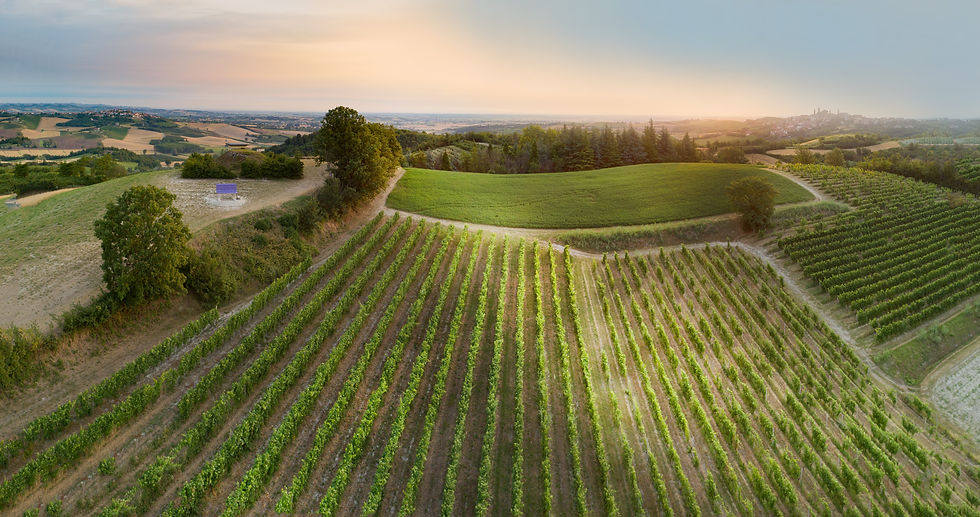
Lombardy Wines
Lombardy's crown jewel is Franciacorta, Italy’s answer to Champagne, made with the same classic method and native precision. Then what is the difference between Champagne and Franciacorta? The grapes: Champagne grows in the Champagne region in France, while Franciacorta grows near Brescia (Lake Iseo area).
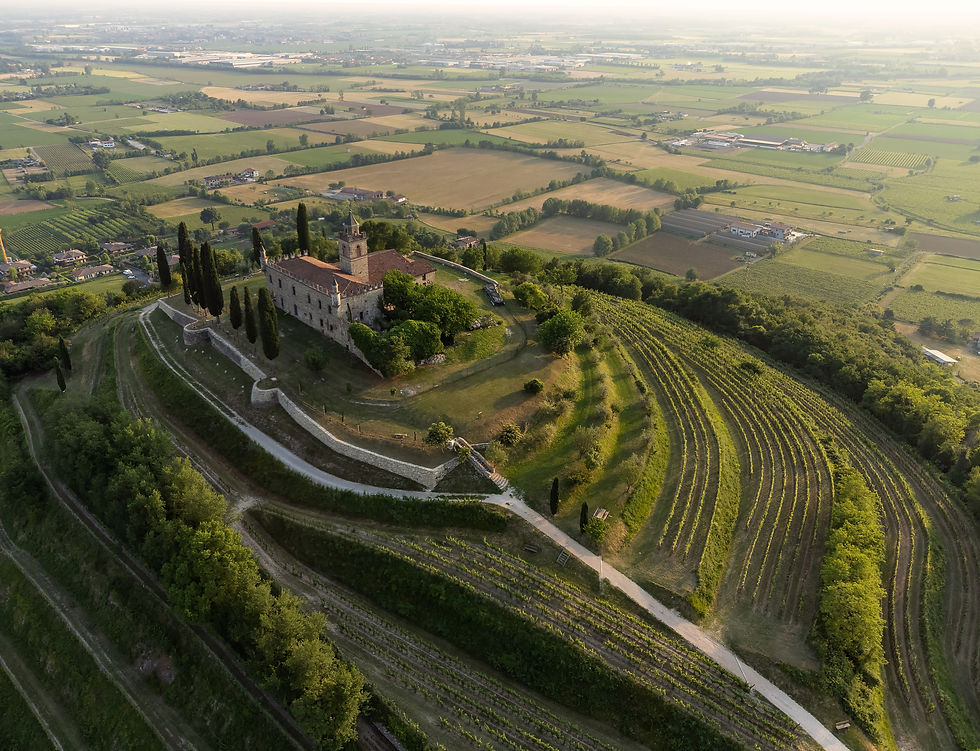
Lugana is another major white wine from Lombardy, often found in restaurants, and that pairs well with almost every food. Then, we have red wines like Pinot Noir of the Oltrepò Pavese, meaning a wine located south of the Pò River and the city of Pavia, and Nebbiolo (or Chiavennasca), with a lighter and silkier profile.


Trentino-Alto Adige Wine
This northern region of Italy is known for its amazing white wines, which are some of the cleanest and most fragrant you'll find. Look out for varieties like Gewürztraminer, Pinot Bianco, and Sauvignon Blanc, they're fantastic! If you’re interested in red wines, try Lagrein and Teroldego. While they might not be as well-known, they offer a rich and unique taste. You’ll notice a touch of Austrian influence in both the wine styles and the way they're enjoyed. These wines are great companions for meat dishes and meals inspired by the mountains.
Friuli Venezia Giulia Wines
Friuli Venezia Giulia is a real haven for white wines; in this region, wine grows primarily in the Giulie Alps, which extend towards the Adriatic Sea. Pinot Grigio is Friuli's most prominent wine and, funny enough, the least consumed wine as well! The most drunk wine by locals is Friulano, followed by Ribolla Gialla, that gained popularity during these last years. The region borders Slovenia and Austria, and that cross-cultural heritage shows in the cellar. Among red wines, we find the popular Refosco, followed by Schioppettino.
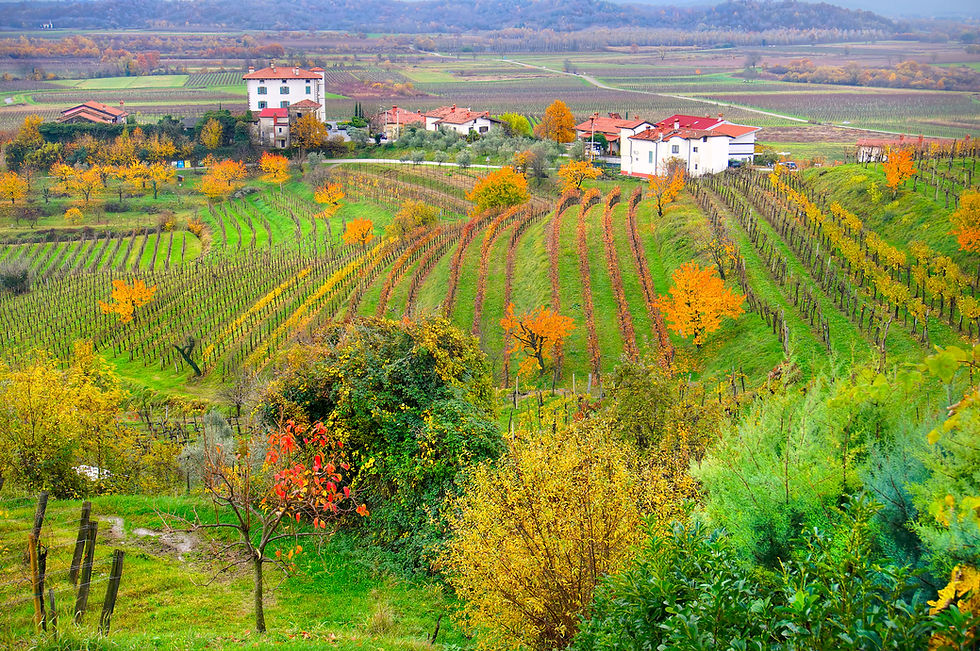
Veneto Wines
The Veneto region is best known for the sparkling Prosecco hills around Valdobbiadene and Conegliano for elegant celebrations or to indulge as a treat. However, Veneto also excels in deep, rich red wines ike Amarone della Valpolicella, made from semi-dried grapes, and often reach 15 - 16% alcohol or more. This is why it’s a good idea to let them breathe for a couple of hours before drinking to bring out their full flavor. If you are looking for something light and fruity, choose Bardolino or Ripasso for a more robust wine. Pinot Grigio is another variety from Veneto among Italy’s most exported wines.
Emilia-Romagna Wines
The Emilia Romagna region is not only the land of balsamic vinegar (Modena) and Parmigiano cheese (Parma), but also gifts us with Lambrusco. This fizzy red wine is great for an aperitivo as it has a refreshing taste and is best enjoyed slightly chilled. Among the white wines of Emilia Romagna, we find Albana and Pignoletto, which are lesser-known but full of charm.
Italy's Central Wine Regions
Tuscany Wines
When thinking of Italian wines, the first region that comes to mind is definitely Tuscany, not only for the different grape varieties, but also for its striking panoramic green hills. Tuscany is home to Chianti Classico, Brunello di Montalcino, and Vino Nobile di Montepulciano, all of which are based on the Sangiovese grape, yet each with its own terroir-driven identity. In more recent years, bold Tuscan blends often use international grape varieties like Merlot or Cabernet. Tuscany is definitely where you can wander through medieval towns and borghi, while enjoying the region's local cuisine and scenery.

Marche Wines
The Adriatic coast and the inland hills, this is Marche's strength, and it extends also to wines. The most popular wine of the region is Verdicchio, a crisp and almondy wine that perfectly pairs with fish dishes, but also Pecorino and Passerina. Among the reds, there are Rosso Conero and Lacrima di Morro d'Alba that bring floral notes and spice to your palate.
Umbria Wines
This beautiful region hosts thirteen thousand hectares of vineyards spread across mountains (30%) and hills (70%). Umbria is home to amazing red wines like the excellent Sagrantino di Montefalco, one of Italy’s boldest, tannic reds, Sangiovese, Ciliegiolo, and Canaiolo Nero.
Looking for a fresh white wine instead? Grechetto and Trebbiano Spoletino are a great choice for the perfect aperitivo while watching the sunset.
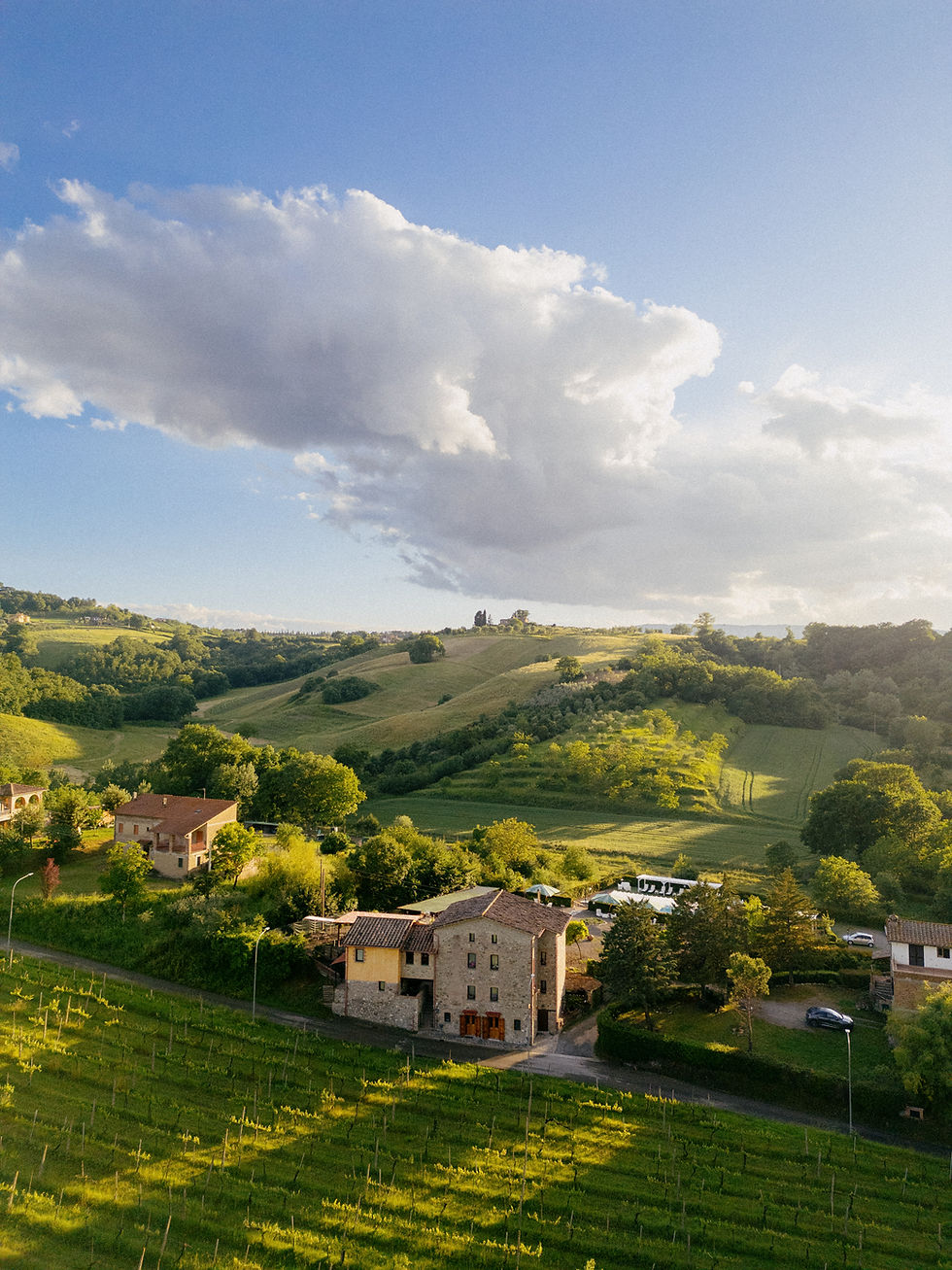
Lazio Wines
Wines from Lazio are very friendly, in every sense of the word. They are easy to drink and can be easily paired with every meal, and are perfect for a day out with friends or a soft celebratory occasion. Often overlooked by wine lovers rushing to Rome, Lazio is undergoing a quiet renaissance. The volcanic soils around Frascati produce light, zesty whites like Malvasia and Trebbiano, perfect for aperitivo under Roman skies. Among the red wines is the Cesanese, a spicy and slightly more structured wine. Lazio’s wines really reflect the essence of its people: joyful, inclusive, and easygoing.
Italy's Southern Wine Regions
Campania Wines
The Campanis region offers a variety of red, white, and rosè wines. The volcanic soils of Mount Vesuvius allow the soil to be very fertile and create the perfect environment for whites like Fiano di Avellino, Greco di Tufo, and La Falanghina, all with a smoky minerality. If you like a fruity red wine, opt for Aglianico or Piedirosso, easy to drink and pair with local culinary specialties. Looking for something truly unique? Try the Paestum Rosato IGP, fresh and fruity with an aftertaste of raspberry and redcurrant.

Abruzzo Wines
The most widely cultivated grape varieties in the Abruzzo region are Montepulciano (red wine), Trebbiano d’Abruzzo, and Pecorino (white wines). The region's Apennine Mountains protect hillside vineyards from the heat, allowing for balanced wines to flourish.
Molise Wines
The province of Campobasso is where most wine producers are located. However, this very small region holds a native red wine that boasts elegance and personality: the Tintilia. Among Molise's white wines are Falanghina and Greco. It’s definitely a destination for adventurous wine travelers seeking something undiscovered.
Puglia Wines
The Puglia region boasts around 100,000 hectares of flourishing vineyards, producing the renowned Primitivo di Manduria, the Nero di Troia, and Salice Salentino in both white and red varieties. Other white wines include Gravina and Moscato di Trani. These lands play a significant role in Italian viticulture, with producers shifting from quantity to a focus on quality.
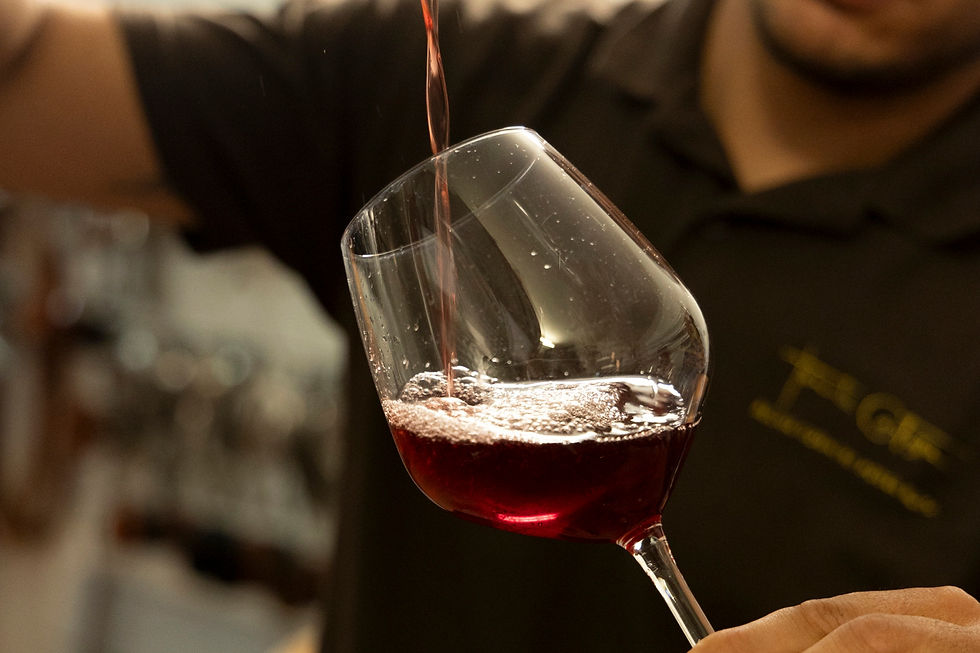
Calabria Wines
Calabria’s most popular wine is Gaglioppo, an ancient red, perfect for meats and aged cheese pairings. Cirò is also a great choice, being the most notable DOC wine of the region. Among the whites are Greco di Bianco, an intriguing dessert wine.

Basilicata Wines
Basilicata is Italy's mystery wine region, from Matera's unique landscape to Mount Vulture (a dormant volcano silent for 130,000 years), are wines with deep aromatic complexities. The region is dominated by Aglianico del Vulture, a powerful red grown on the slopes of this extinct volcano. The red Primitivo di Matera is another unique wine worth trying, alongside a lesser-known white Greco Bianco.
Sicily Wines
Sicily and its volcanic ash soils gave birth to one of the most exciting red wines, Etna Rosso, grown around Mount Etna - its flavor is smoky, fresh, and mineral. Just as enriching is the Nero d’Avola, offering a bold and fruit-driven structure that pairs perfectly with spicy meats, ricotta-filled ravioli, and light risottos. This southern Italian island also excels in white wines like Grillo, Carricante, and fortified Marsala (great from your aperitivo, all the way to after dinner).

Sardinia Wines
The island’s flagship white is Vermentino di Gallura, a fresh and saline wine with a hint of Mediterranean herbs. This wine is the perfect reflection of summer and an evergreen choice for fish pairings. On the other side, Sardinia is also home to the Cannonau, the local name for Grenache, which produces reds that are soft yet structured, and part of Sardinia’s longevity legend. Look also for Carignano del Sulcis, grown in sandy coastal soils.
Looking for a unique wine tasting experience in the Italian countryside?
Contact a member of our team or schedule a free call with a local travel advisor and start planning your escape to Italy!
.png)



